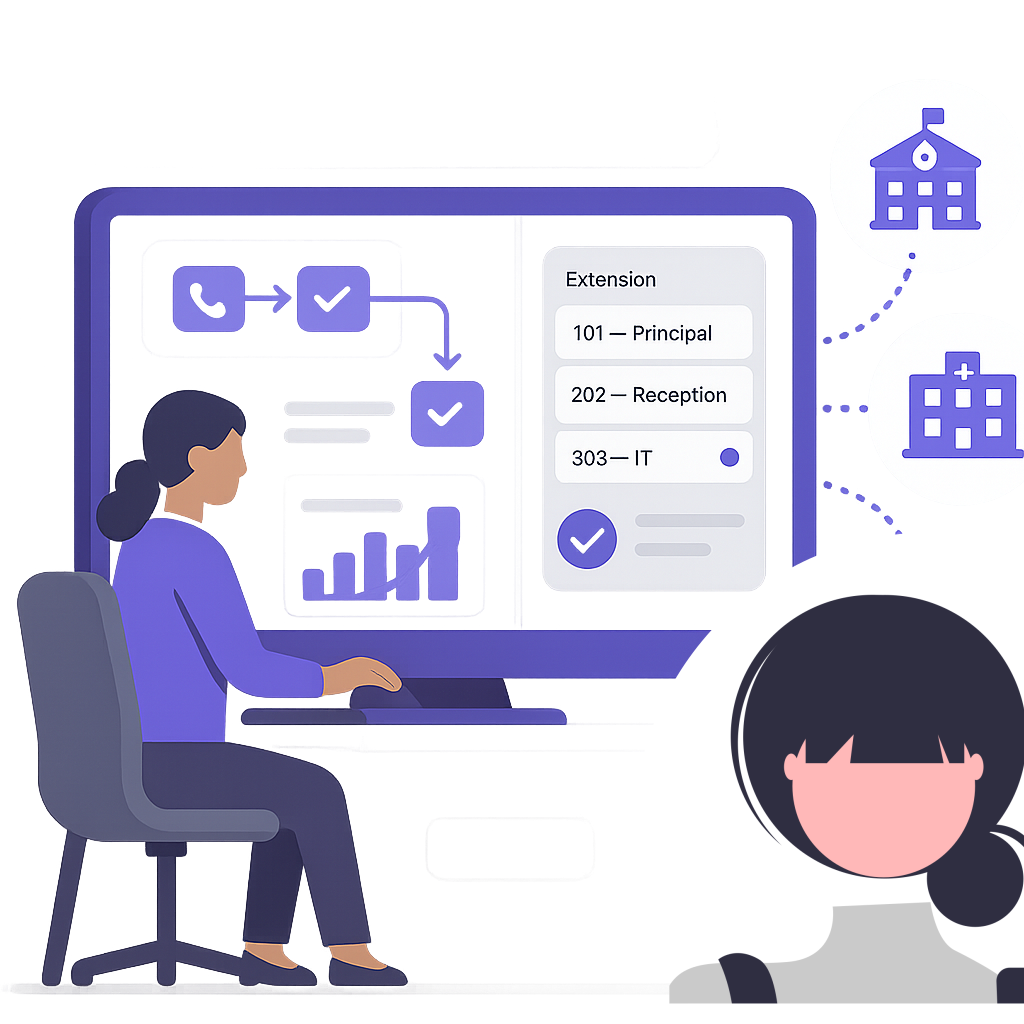SIP Integration: Works With Your Existing Phone System
Already use 3CX, FreePBX, Cisco, or RingCentral? Connect AI directly to your VoIP infrastructure—no hardware changes, no porting, no hassle.

The Twilio-Only Problem
Most AI phone services use Twilio's cloud infrastructure exclusively. That works fine for basic setups—but if you've already invested in a VoIP system, you're stuck routing calls through external carriers, paying per-minute fees for internal transfers, and dealing with unnecessary complexity.
SIP Integration changes this. AI Receptionist connects directly to your existing phone system. Calls transfer to internal extensions instantly, your PBX handles routing logic, and you avoid carrier fees for internal calls. Simple, fast, cost-effective.
How to Set It Up
Non-technical setup in 3 steps
Get SIP Credentials
Contact us and receive your SIP username, password, and server address.
Add to Your PBX
Copy/paste credentials into your phone system (3CX, FreePBX, etc.). Takes 5-10 minutes.
Configure Transfer Routing
Configure Contacts for each one a corresponding transfer rule. Done.
SIP Integration vs. The Competition
Connect directly to your existing phone system
| Feature | AI Receptionist | Synthflow | Smith.ai | My AI Front Desk | Dialzara |
|---|---|---|---|---|---|
| Native SIP integration | |||||
| Works with existing VoIP/PBX | |||||
| Internal extension transfers | No carrier fees | Yes | PSTN only | PSTN only | PSTN only |
| Use your existing hardware | |||||
| Simple setup (5-10 min) | N/A | N/A | N/A | ||
| Price with SIP capability | $199/mo | $375+/mo | $95/mo | $99/mo | $29/mo |
Data verified January 2026. Based on ChatGPT 5.2 Deep Research analysis.
Compatible Phone Systems
Works with any SIP-compatible VoIP system, including:
3CX
FreePBX
Cisco Unified CM
RingCentral
Asterisk
Avaya
Mitel
Any SIP-based VoIP
Frequently Asked Questions
Will this work with my existing phone system?
If your phone system supports SIP (Session Initiation Protocol), yes. This includes 3CX, FreePBX, Asterisk, Cisco, RingCentral, Avaya, Mitel, and most modern VoIP systems. Check your PBX documentation or contact your IT provider if you're unsure.
Is setup complicated?
No. You get SIP credentials from us after contacting support (username, password, server address), then add them to your phone system like you would any other SIP trunk. Most admins can set this up in 5-10 minutes.
Do I need to hire an IT consultant?
Not typically. If you have someone who manages your current phone system, they'll find SIP integration straightforward. If you don't have IT staff, we can try to help you - just contact us!.
Can I transfer calls to internal extensions?
Yes! That's the main benefit. AI Receptionist can transfer calls directly to extension 201, 305, or any other internal extension without routing through external carriers. This saves money and improves call quality.
Learn more: Settings Documentation
Is SIP integration more expensive?
It's included in the business plan for $199/month. You get the same AI features whether you use SIP integration or standard call forwarding—SIP just gives you more flexibility if you already have VoIP infrastructure.